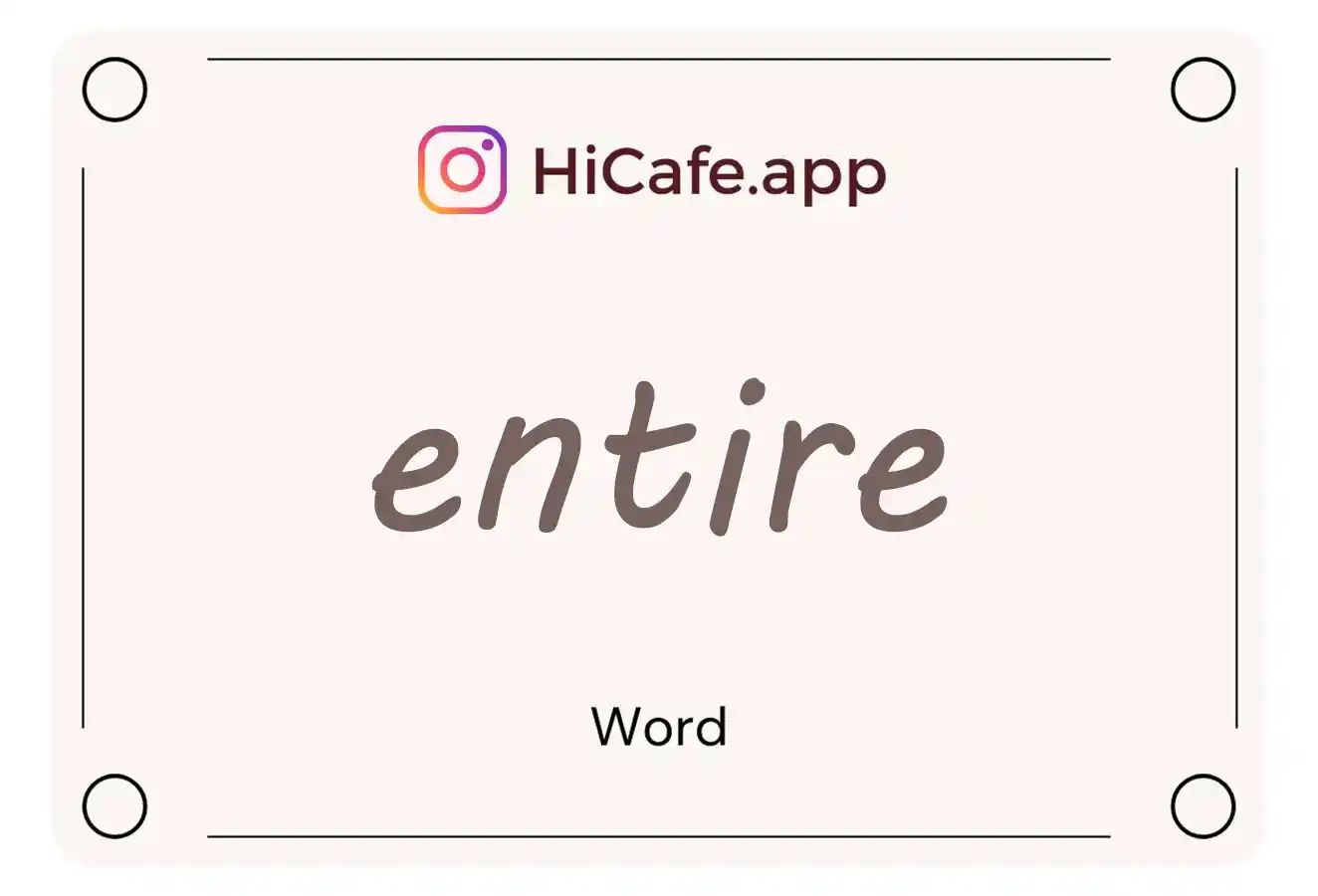
Word of the Day: Entire
The word “entire” refers to 100 percent of something. It’s similar to the word “whole.”
- We spent the entire day at the beach.
- Bob ate an entire pizza for lunch.
- Global climate change affects the entire planet.
- The candidate’s speech took an entire hour.
- The tornado wiped out the entire town. Not one building was left standing.
The word “entirely” is an adverb. It’s similar to the word “completely.”
- Some species of animals have been entirely eliminated due to human activities.
- The story that we heard about the man and the woman was entirely false. None of it was true.
- It’s entirely possible that the program we’re experimenting with won’t work. (The word “entirely” is used as an intensifier in this example.)
The word “entirety” is a noun:
- The construction of the bridge was completed over the entirety of a two-month period.
- It’s not likely that the film will be shown in its entirety because it’s seven hours long.
Essential English Dictionary
Visit the Popular English Words Beginning with E page to see the list of all words starting with letter E. For seeing the HiCafe dictionary, visit the Popular English Words with Meaning page.


